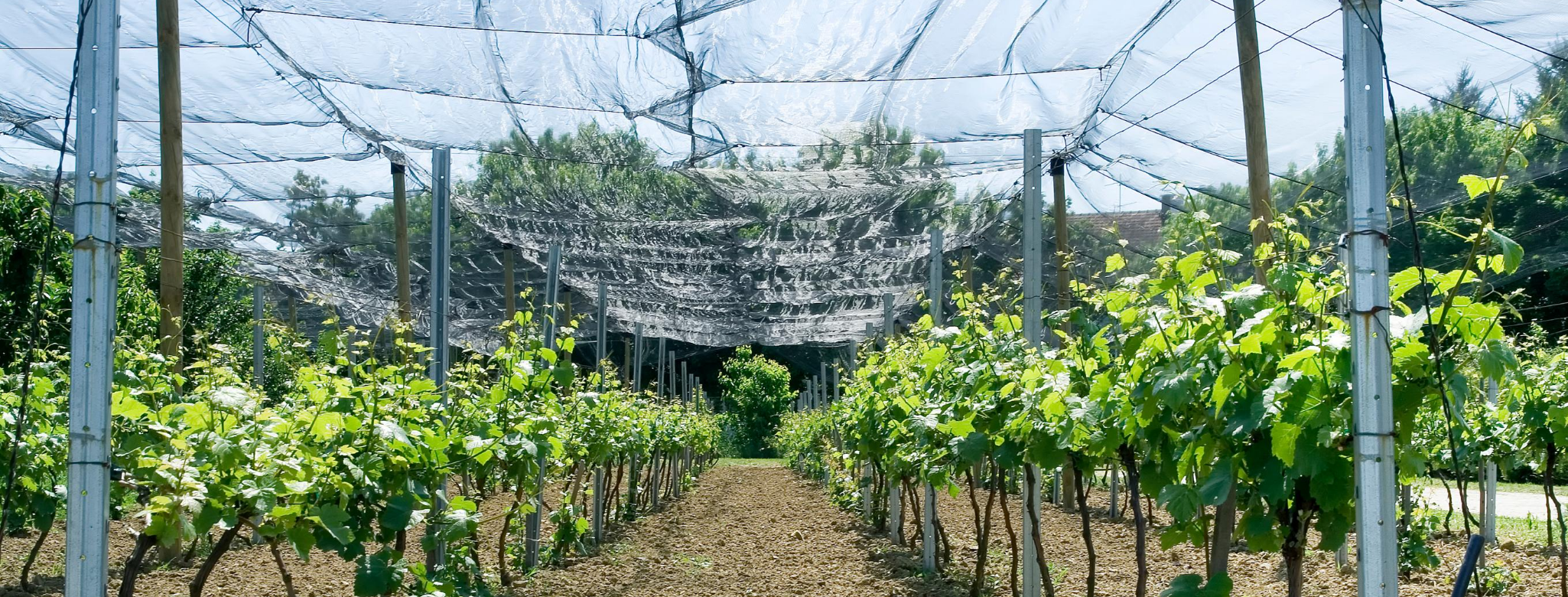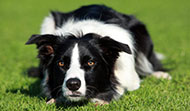
Bird and Wildlife Control for Vineyards in Virginia
Many vineyards focus their pest control efforts on small common insects, but there are much larger animals that put grapevines in danger as well. Rodents, birds, squirrels, foxes, deer and other foraging mammals feed on grapes and grapevines, putting vineyard production at risk and compromising the quality of wine grapes. Vineyard growers in Virginia understand how valuable their grape production is to the overall economy, as well as their business. Protecting their crops and harvests is not only crucial but a year-round task that requires commitment.
Types of Wildlife in Vineyards
Vineyards in Virginia are most frequently pursued by deer, rodents, gophers, field mice, birds, possum, squirrel, and raccoons. Birds, in particular, are a notorious pest animal and will destroy a harvest by pecking through fruit and damaging it so that it cannot be used for winemaking. The most common pest birds for Virginia’s vineyards are flock birds such as European starlings and blackbirds.
“Birds like grapes—they really like grapes. Bird damage to vineyards can be a very serious problem, especially since grape-eating birds tend to travel in flocks, so if you've got a bird problem in your vineyard, it's more like a 5,000-bird problem.” -Ask Dr. Vinny, Wine Spectator Magazine
There is other wildlife animals to be concerned with, depending on the vineyards’ location in Virginia, but deer and birds are the biggest nuisance animals to watch for. In larger vineyards, the loss of crops due to bird damage could be as high as 10-30%, resulting in millions of dollars’ worth of lost revenue. Smaller vineyards run a greater risk with flock birds creating total loss and damage to an entire crop. Even if wildlife pests don’t eat the fruit on your vines, they may tear leaves or damage shoots and vines so that they no longer support the plant.
Bird Control Methods for Vineyards
The most common ways to control birds in vineyards is with chemical spray bird repellants and bird netting. Chemical repellants are used to control wildlife around your vines, however, one should understand how these chemical repellants work before using. You should always be careful when spraying any chemical directly onto the grapes. Some wine experts agree that spraying anything on the fruit or in the vineyard will affect the outcome of the wine.
Furthermore, chemical repellants and pesticides such as Phostoxin, is very dangerous for the operator to handle. The safest method for bird control is through natural, non-chemical means. Wildlife and Bird Control Specialists are trained to handle many different bird problems in safe, effective and humane ways; From bird nets, to deterrents, odor repellants, gridwire, and even herding dogs for bird control.
Natural Ways to Control Wildlife in Vineyards
Most vineyards today use natural and chemical-free wildlife control methods. Odor repellants can be sprayed around vines or mounted on the trellis, sound repellants startle deer, and fences and net barriers to keep pests out such as birds, raccoons, squirrel, deer, rabbits, and possum. Overhead bird nets and vinyl screens are commonly used in vineyards for wildlife pest control. Some larger vineyards will even allow hunting to control local deer populations.

Herding Dogs for Bird and Geese Control
Nearly every dog will scare and chase off Canadian geese or other birds if given the chance. However, the most effective dogs for geese chasing are Border Collies, German Shepherds and Australian Shepherds.
While other dog breeds can be effective if trained properly, these are currently the most popular breeds for chasing birds and Canada geese. Their intelligence levels, attentiveness, and herding qualities make them the perfect breeds for herding and chasing Canadian geese.
The Border Collie was bred for herding and is best suited for getting large flocks of geese off your property. Border Collies are bred to herd without harming the Canadian Geese. German Shepherds, with their quick-learning abilities and intimidating size are also good breeds for the job. Most geese will not challenge a German Shepherd.
Professional geese herding dogs will never catch or harm geese. They will only work to remove them from the area, carefully and systematically. Trained geese removal dogs can clear parks, airport runways, golf course properties or commercial grounds in no time, without harm to the geese or themselves. And because the German Shepherd and Border Collies are working dogs that need a lot of exercise, they are most happy when they are working.
Bird Netting and Barriers
Xceptional Wildlife Removal and Feather Free Zone offer a wide variety of bird control methods and wildlife control services for vineyards, including bird netting, fencing, repellents, traps, sound and visual deterrents - with vineyard bird netting being the most effective.
The advantage of overhead bird netting for vineyards is the ability to work the vines while the nets are still protecting the crop. Crop netting that is draped over vines still allows for birds to land, and peck at the fruit. With proper care and installation, quality bird netting can be used for many seasons.
Sound Deterrents for Bird Removal
Other solutions for bird control and removal are sound devices, such as ultrasonic bird deterrents, propane cannons and hailing devices for short-term and occasional use. Ultrasonic products produce vibrations that birds can feel. These sound vibrations disorient the birds making them feel uncomfortable, motivating them to seek a safer area.
Visual Deterrents for Bird Control
Visual deterrents, such as scarecrows (owls and hawk decoys), reflective ribbons, are simple and affordable but usually only provide temporary results. Bird are smart and learn quickly! Xceptional Wildlife and Feather Free Zone utilize a combination of bird and wildlife management techniques to achieve sustainable, effective results.
Lasers for Bird Control Lasers can also be useful in deterring birds. Some vineyard managers have discovered the best bird control solution to be a bird laser system used in conjunction with propane bird cannons and mylar tape. Cannons and tape alert birds, while the laser creates an environment that pushes them out of the area.
Rodent Control in Vineyards
When it comes to resolving a rodent problem in a vineyard, many experts claim that non-chemical wildlife control methods like owl boxes have not proven to be very effective. According to Raptors are the Answer Organization, barn owls need to be used in sufficient densities to make a difference on rodent populations.
One nest box for every 10 to 20 acres is a good rule of thumb. The downside to installing owl boxes is it takes time to attract owls to the boxes. In the meantime, owl boxes may become inhabited by squirrels and other birds before an owl ever discovers it. For immediate protection, it is best to go with other rodent control methods. Unfortunately, rodents can multiply faster than an owl can inhabit an owl box.
Some wildlife pest experts recommend utilizing a Pressurized Exhaust Rodent Control (PERC) system. According the University of California field trials, this method has proven to be very effective in reducing populations of burrowing rodents from 65-100% in the first treatment.
When to Implement Wildlife Control in Your Vineyard
The best time to implement a wildlife control system is right after planting season. Based on the local wildlife activity in the area, a plan for the whole season should be put in place. Different pest animals strike at various times throughout the year. Putting up wildlife cameras and closely monitoring vines throughout the growing season will help you implement your pest control strategy accordingly. Watch for wildlife activity and damage around your plants regularly.
Do not to wait until a flock of birds are ravaging your crops or after the damage is well in progress before calling a wildlife control or bird removal specialist. Often times, wildlife control teams are limited or already booked for the season.
Bird control and deer control in vineyards require early planning. Prevention is the best method for keeping pest animals away. Field mice, gophers, squirrels and other rodents can be a major problem in vineyards. The best time for rodent control is after the foliage has fallen. By doing so, you will have a better visual overview of the grounds and the vines. Gophers and ground squirrels are active year-round through late fall, so winter treatment is optimum.
Prevent wildlife from destroying your crops by planning ahead. Schedule a free consultation with one of our wildlife removal specialists today. Our team will work to create a program that fits your needs, and most importantly works to keep your vines safe and pest free.
Contact Us for a complimentary evaluation. It’s the last call you’ll ever have to make about your bird and wildlife problems.
